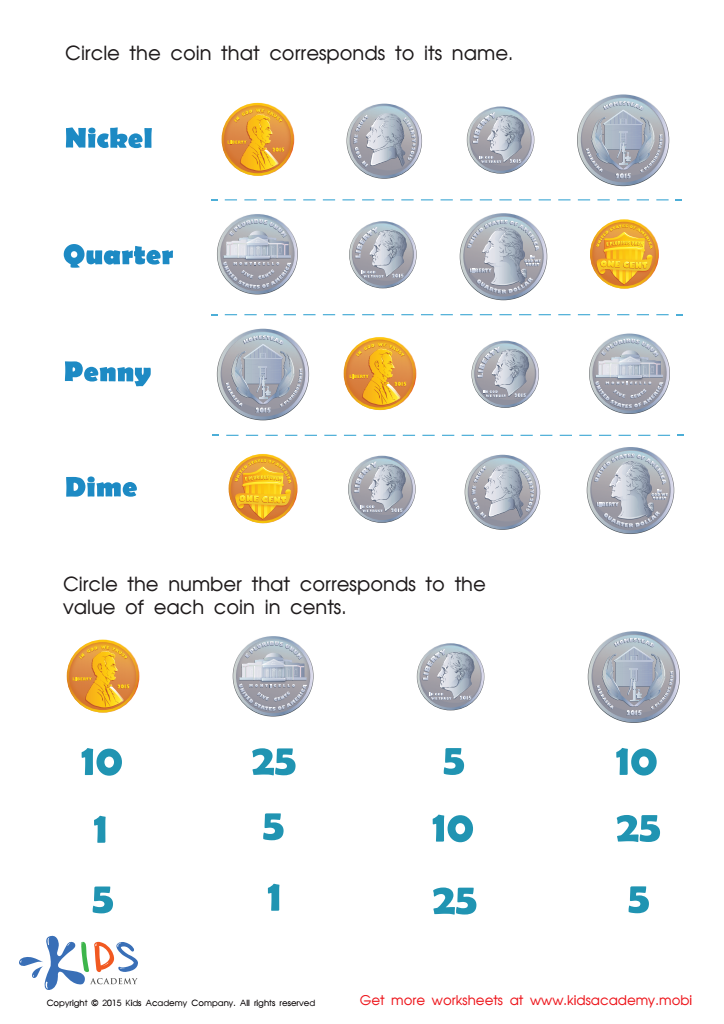Value identification Worksheets for Kids
1 filtered results
-
From - To


Coin Names and Values Money Worksheet
Question/Answer
How to train the Value identification skill in Grade 2 students learning about Money?
To train Grade 2 students in value identification with money, incorporate hands-on activities such as sorting coins and bills, playing store with price tags, and using worksheets that focus on recognizing and adding different denominations. Interactive games and apps designed for money math can also be engaging and effective in reinforcing the skill of value identification.
How does the mastery of the Value identification skill affect a student's performance at an early age?
Mastering the value identification skill at an early age significantly enhances a student's academic and social performance. It aids in developing critical thinking, decision-making capabilities, and ethical reasoning. This skill fosters a deeper understanding of personal and societal values, leading to better interpersonal relationships and a stronger sense of self, ultimately contributing to improved confidence and academic achievements.
Why is the Value identification skill important for Grade 2 students?
Value identification skill is important for Grade 2 students because it lays the foundation for their moral and ethical development, helps in recognizing and respecting diversity, aids in decision making, and fosters a sense of empathy and responsibility. This skill is crucial in building their character and guiding their interactions with others in a respectful and understanding manner.
 Assign to the classroom
Assign to the classroom











